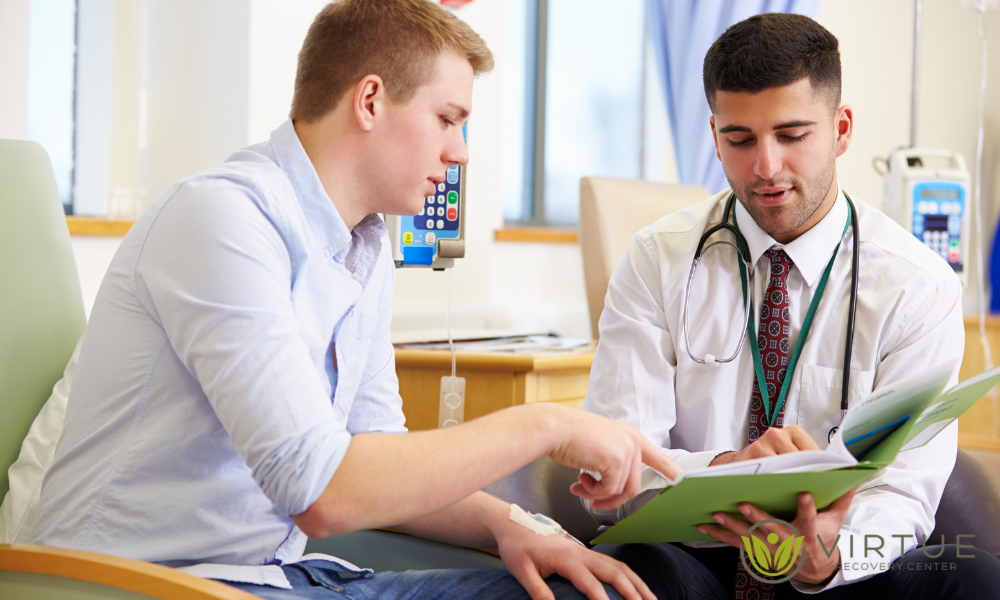Key Takeaways:
- Graduate students in STEM often become dependent on stimulants because they have a lot of stress and work to do.
- Inpatient rehab programs in Las Vegas are experts at providing comprehensive care tailored to this specific group of individuals.
- Medical detox, therapy, and planning for how to avoid relapse are all important parts of a good substance use treatment for stimulants.
- Adding structured programs like the Drug Detox Program and the Relapse Prevention Therapy Program greatly increases the chances of long-term recovery.
- Following the Ultimate Inpatient Addiction Rehab Packing List is one way to get ready for treatment that will make you more comfortable and focused.
Introduction
Many people who are having a hard time in STEM graduate school turn to prescription stimulants, which are often thought of as ways to improve academic performance. Sadly, what starts out as occasional use can turn into drug dependence, which can hurt your mental health, your relationships, and your schoolwork. For graduate students who feel overwhelmed, seeking help from places like Las Vegas inpatient rehab can make a significant difference.
Las Vegas inpatient rehab centers are equipped to support high-achieving individuals in overcoming the challenges they encounter. Participants can take a break from school stressors and focus solely on improving in a structured, supportive environment. This separation allows things to settle down, heal, and develop new, healthy ways to cope with stress.
How do STEM graduate students end up addicted to stimulants?
A lot of college and graduate students misuse prescription stimulants, according to Campus Drug Prevention research. A study found that 14.5% of people said they used non-medical stimulants, usually to help them focus and get more done. But this kind of misuse often happens along with mental health problems like stress, anxiety, and mood disorders, making the clinical picture more complicated.

When people misuse drugs for a long time, they may become physically dependent on them, develop a tolerance to them, and have withdrawal symptoms. These problems can lead to sleep problems, bad decisions, and academic burnout, which are all serious issues that a Las Vegas inpatient rehab setting is meant to help with.
What should you expect from a stimulant abuse treatment program?
Evidence-based and multi-faceted, inpatient substance use treatment for stimulant abuse includes:
- Medical check-up and stabilization: Making sure that withdrawal is handled safely under medical supervision.
- Behavioral therapies, including cognitive-behavioral therapy and motivational interviewing, help individuals change their habits and thought patterns.
- Workshops for learning: Psychoeducation about addiction, how to deal with stress, and what causes relapses.
- Holistic care: Mental health support for grad students with more than one mental illness.
The Substance Abuse and Mental Health Services Administration says that combining medical care with behavioral interventions that have been shown to work greatly improves recovery outcomes.
What specialized programs are there, and why are they so important?
Inpatient rehab centers in Las Vegas often have special parts that are:
- Drug Detox Program: A medically supervised detox makes sure that the person is safe during the first few days of withdrawal, when the risk of heart and mental health problems is highest, which was also recorded by PubMed Central.
- Relapse Prevention Therapy Program: This program teaches individuals how to manage stress, prepare for returning to school, and effectively cope with stress.
- The Ultimate Inpatient Addiction Rehab Packing List: This list of things to bring to rehab helps patients feel grounded and less stressed during the transition.
These components work together to form a comprehensive support system that addresses the academic, cognitive, and emotional needs of STEM graduate students.
Why should you go to Las Vegas to get better?
There are a few important reasons why Las Vegas is a good choice:
- Privacy and anonymity: Attending rehab in a different state reduces the likelihood of encountering professors, classmates, or lab coworkers by accident.
- Intensive, distraction-free care: Residential programs remove the stress of deadlines and expectations, allowing students to focus fully on their recovery.
- Focus on finding a balance in school: Counselors work with students to develop plans for returning to graduate school with improved habits and boundaries.
Compared to outpatient programs, studies show that inpatient treatment engages people more in their treatment and reduces the number of early departures. This gives students a better chance to recover.
How does recovery support go on after treatment?
Recovery doesn’t stop when you’re discharged; it’s important to avoid relapsing. Planning for aftercare is often part of programs.
- Alumni networks and group therapy
- Recommendations for outpatient care or support groups close to campus.
- Ongoing academic advising to help you get back on track with confidence
A well-organized Relapse Prevention Therapy Program gives students the skills they need to handle stress, time commitments, and schoolwork without going back to using drugs.
Conclusion
If you’re a grad student who feels stuck because of your dependence on stimulants, going to an inpatient rehab in Las Vegas can change your life. These specialized programs offer medical detox, behavioral therapy, relapse prevention, and ongoing support—creating a safe haven for students to heal, regain control, and equip themselves for academic success.
There is one important step that must be taken to start the road to recovery. Contact Virtue Recovery Las Vegas at Tel: 866.520.2861 today to take back your life and create a healthier future.
FAQs:
1. Can I go to inpatient rehab and still keep up with my schoolwork?
Yes. Many Las Vegas inpatient facilities allow students to stay for a flexible amount of time or only part of the time, so they can return home and continue to improve.
2. Does insurance cover addiction to stimulants?
Most health insurance plans cover evidence-based addiction treatment that is supported by scientific evidence.
3. How long does it take to get off of stimulants?
Detox typically takes 3 to 7 days, but the duration may be longer or shorter, depending on the length of time you’ve been using. Medical supervision ensures that the entire process is safe.
4. Will I be able to get academic counseling while I’m getting treatment?
Yes, programs often include vocational and educational counseling to help students stay involved in school in the future.
5. What is the difference between inpatient and outpatient rehab?
Inpatient rehab gives you structure and medical care around the clock, which is great for treating multiple conditions at once and lowering the risk of relapse compared to outpatient settings.
Citations:
Substance Abuse and Mental Health Services Administration. Treatment for Stimulant Use Disorders. SAMHSA Library, 2021, https://library.samhsa.gov/sites/default/files/pep20-06-01-001.pdf.
“OInfluence of Substance Use on School Performance.” Get Smart About Drugs, U.S. Drug Enforcement Administration, 15 May 2023, https://www.getsmartaboutdrugs.gov/content/school-failure.
“Key Findings – Campus Drug Prevention.” CampusDrugPrevention.gov, June 2022, https://www.campusdrugprevention.gov/sites/default/files/2022-06/CPDS_Multi_Institutional_Key_Findings_2022.pdf.
“Substance Use and Mental Health Problems Among Graduate Students.” PubMed Central, 2020, https://www.ncbi.nlm.nih.gov/pmc/articles/PMC7483200/.









